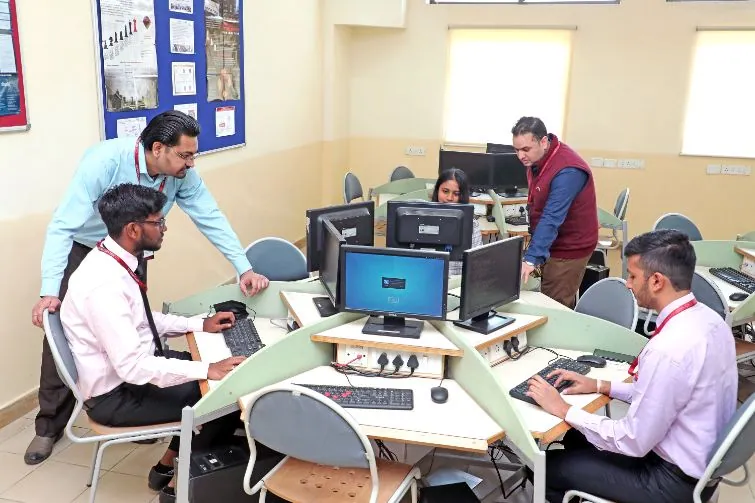Why Should You Enroll in a Skill Program in Shipbuilding Engineering?
The shipbuilding industry is a cornerstone of global trade and transportation, playing a crucial role in the economy. As the demand for advanced and environmentally friendly vessels increases, so does the need for skilled professionals in this field. Enrolling in a Skill Program in Shipbuilding Engineering is an excellent opportunity for individuals interested in pursuing a career in this dynamic industry. Such programs, particularly those offered through a Diploma in Shipbuilding Engineering, provide the essential skills, knowledge, and hands-on experience needed to thrive in this field.
The Importance of Shipbuilding Engineering
Shipbuilding engineering involves the design, construction, and maintenance of ships and marine structures. This field requires a deep understanding of various engineering principles, materials, and technologies. As the industry evolves, professionals must keep pace with advancements in engineering practices, environmental regulations, and innovative technologies.
The increasing complexity of ship design and construction necessitates a workforce that is both highly skilled and adaptable. With the rise of automation, green technology, and international safety standards, shipbuilding engineers must possess a wide range of competencies, making specialized training essential.
What is a Skill Program in Shipbuilding Engineering?
A Skill Program in Shipbuilding Engineering focuses on equipping students with the practical skills and theoretical knowledge required in the shipbuilding industry. These programs emphasize hands-on training and real-world application, allowing students to learn the nuances of ship design, construction, and repair.
Key components of a skill program include:
- Hands-on Training: Students engage in practical exercises that simulate real-world shipbuilding processes, allowing them to apply theoretical concepts in a controlled environment.
- Industry-Relevant Curriculum: The curriculum is designed in collaboration with industry experts to ensure that it meets current and future demands.
- Certifications: Successful completion of the program typically results in a certification that is recognized by employers, enhancing job prospects.
Benefits of a Diploma in Shipbuilding Engineering
Pursuing a Diploma in Shipbuilding Engineering offers numerous advantages, particularly for those looking to start a career in this field quickly. Some of the benefits include:
- Focused Education: A diploma program provides concentrated training in shipbuilding without the broader scope of a full degree program. This focused approach allows students to gain specialized knowledge that is immediately applicable in the workplace.
- Shorter Duration: Diploma programs are generally shorter than traditional degree programs, enabling students to enter the workforce sooner. This can be particularly appealing for those eager to begin their careers.
- Practical Skills Development: The hands-on nature of diploma programs means students develop practical skills that are highly valued by employers. This practical experience is often what sets diploma graduates apart in the job market.
- Job Readiness: Graduates of diploma programs often find themselves job-ready, equipped with both technical skills and the ability to work in teams and solve problems effectively.
The Role of Vocational Training Partners
One of the significant advantages of enrolling in a skill program is the collaboration with vocational training partners. These partnerships enhance the learning experience by providing students with access to industry-standard facilities and expertise.
Vocational training partners may include:
- Shipyards: Partnerships with local shipyards provide students with the opportunity to work in real-world environments, gaining experience in actual shipbuilding projects.
- Engineering Firms: Collaborations with engineering companies allow students to learn from industry professionals and understand the intricacies of marine engineering.
- Government Agencies: Working with government bodies can provide insights into regulations and standards that govern the shipbuilding industry.
These partnerships are invaluable as they bridge the gap between academic learning and industry expectations, ensuring that graduates are well-prepared for the challenges they will face in their careers.
Glocal University: A Leading Institution for Shipbuilding Training
Glocal University stands out as a premier institution offering specialized vocational training programs, including the Skill Program in Shipbuilding Engineering. The university is committed to equipping students with the skills and knowledge required to excel in the shipbuilding sector.
Key Features of Glocal University’s Skill Program in Shipbuilding Engineering:
- Comprehensive Curriculum: The curriculum encompasses a range of subjects essential for a career in shipbuilding, including marine engineering principles, structural design, materials science, and safety regulations.
- Industry Collaboration: Glocal University collaborates with various industry partners, ensuring that the training provided aligns with current market needs and trends.
- Experienced Faculty: The program is taught by experienced instructors who bring both academic knowledge and practical experience to the classroom.
- State-of-the-Art Facilities: Students have access to modern facilities and equipment, providing them with a realistic learning environment.
- Internship Opportunities: Students can participate in internships through the university’s network of vocational training partners, gaining hands-on experience in the industry.
Glocal University Certificate
Upon successful completion of the Skill Program in Shipbuilding Engineering, students are awarded a Glocal University Certificate. This certificate is recognized by employers and serves as a testament to the student’s skills and knowledge in the field.
Having a Glocal University Certificate enhances employability, as it indicates that the graduate has undergone a rigorous training program aligned with industry standards. Graduates are better positioned to secure jobs in shipyards, engineering firms, and other related industries.
Career Opportunities in Shipbuilding Engineering
Enrolling in a Skill Program in Shipbuilding Engineering opens doors to a variety of career opportunities, including:
- Marine Engineer: Responsible for the design and maintenance of ship systems, including propulsion and electrical systems.
- Ship Design Engineer: Focuses on the design and analysis of ship structures and systems to ensure they meet safety and performance standards.
- Project Manager: Oversees shipbuilding projects, ensuring that they are completed on time and within budget.
- Quality Assurance Inspector: Ensures that all ship components meet industry standards and regulatory requirements.
- Safety Officer: Focuses on maintaining safety standards in shipyards and during ship construction.
Conclusion
Enrolling in a Skill Program in Shipbuilding Engineering offers a robust pathway to a rewarding career in a dynamic industry. With the support of institutions like Glocal University, students can gain the essential skills, knowledge, and practical experience required to excel in this field. The combination of a focused curriculum, hands-on training, and recognized certification positions graduates for success in a variety of roles within the shipbuilding sector. As the industry continues to evolve, skilled professionals will remain in high demand, making this an excellent time to pursue a career in shipbuilding engineering.






